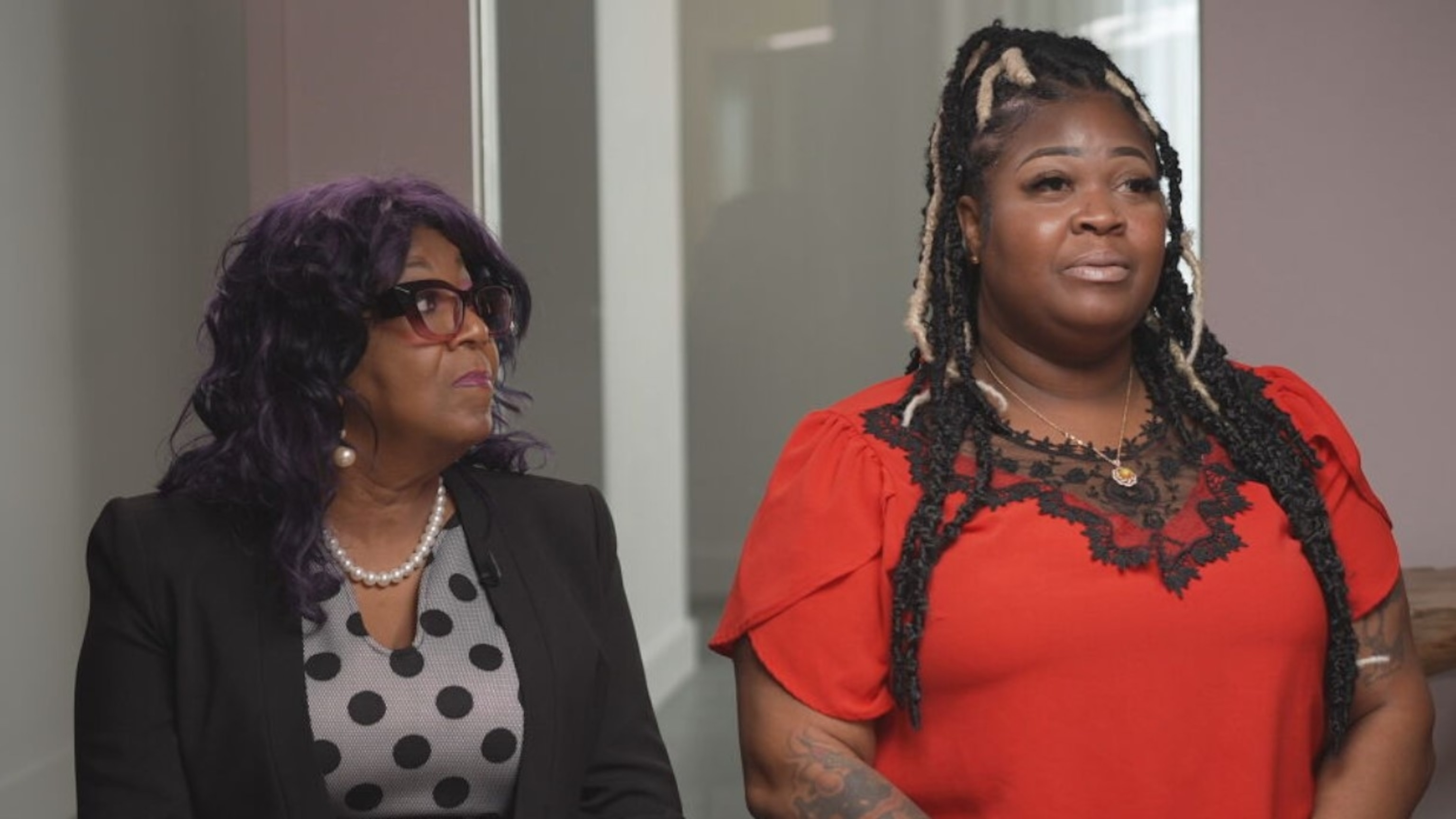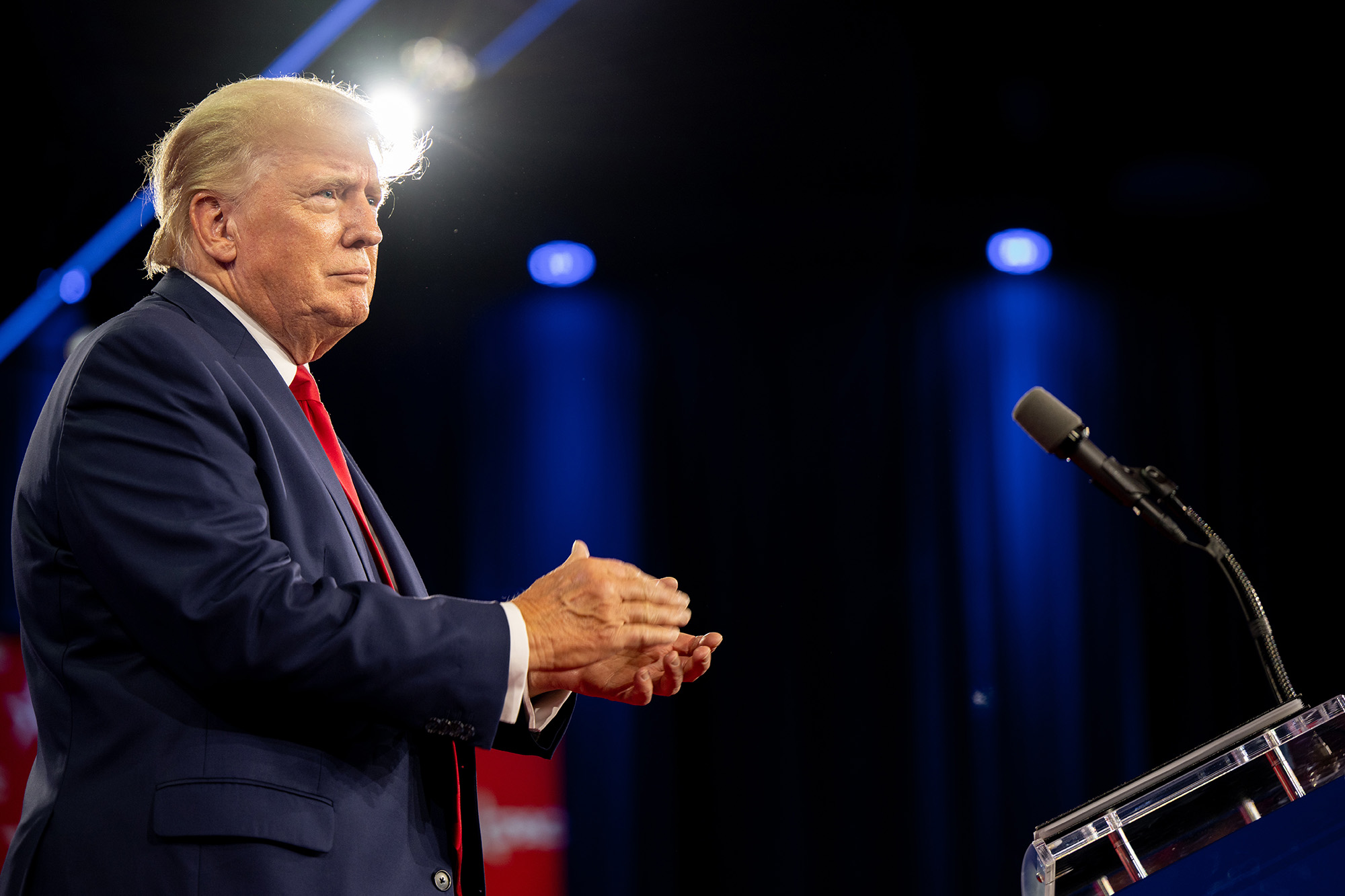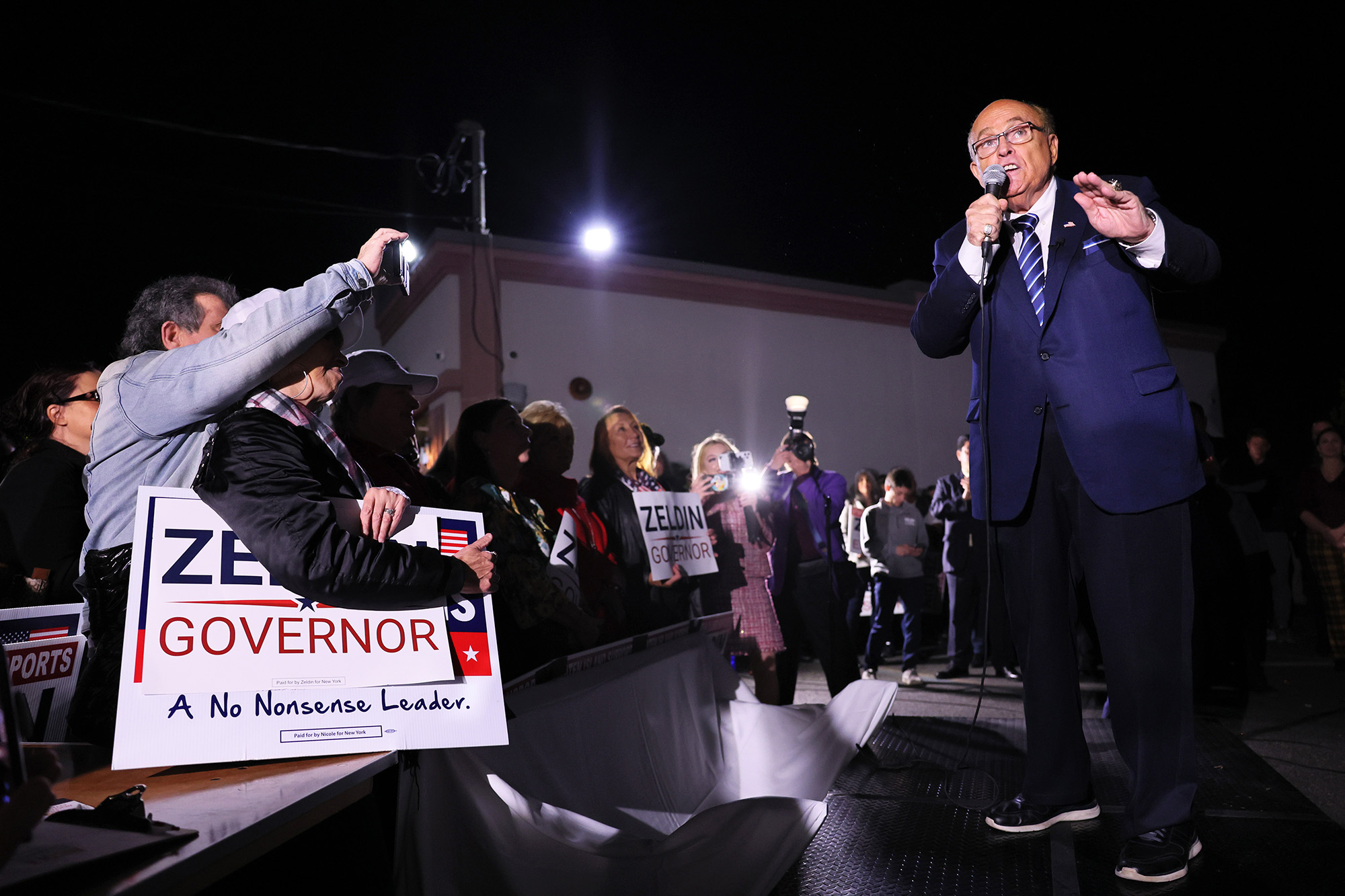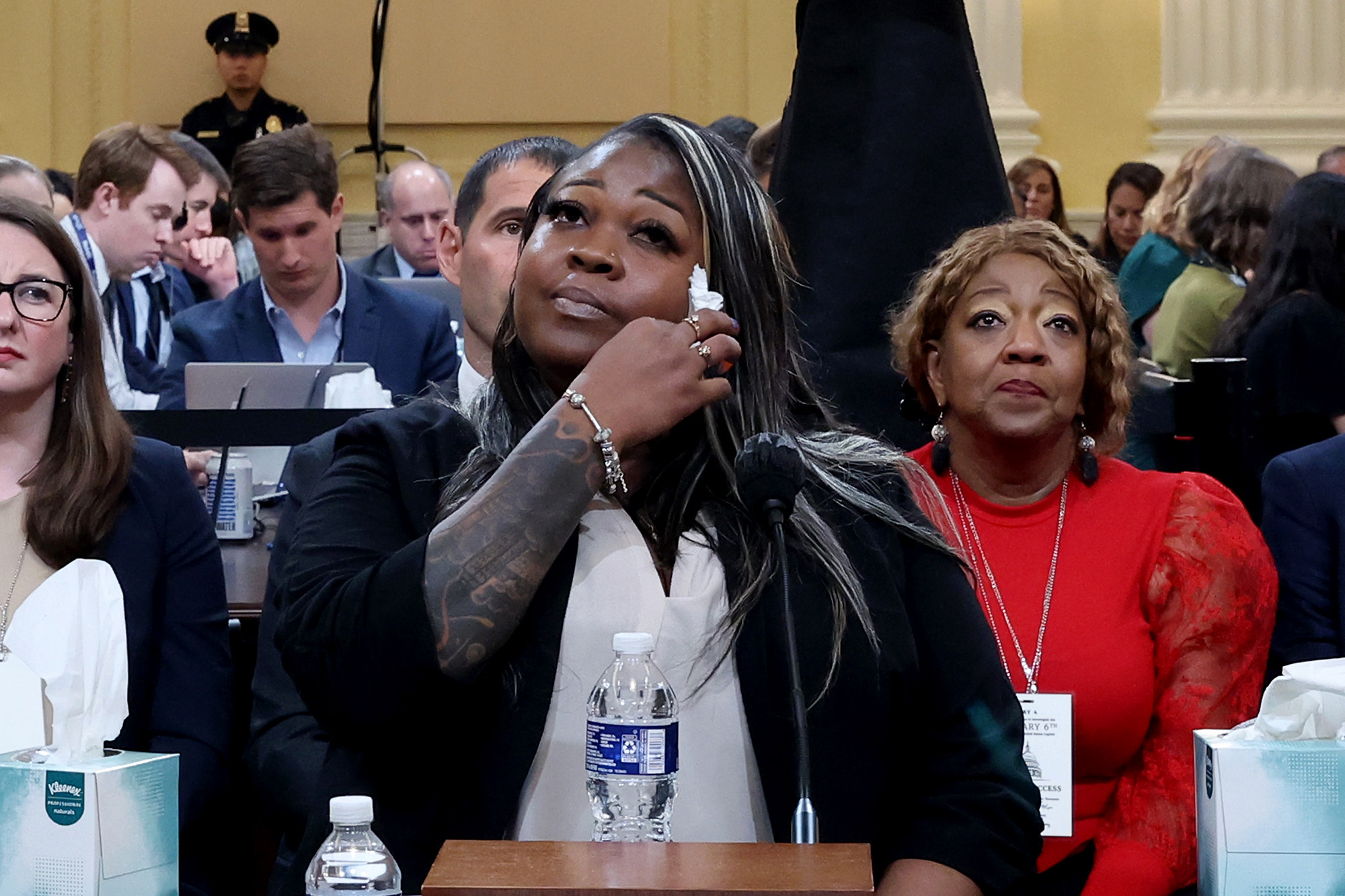Mother-daughter election workers describe how they lived through Trump-backed accusations of conspiracy
Ruby Freeman and Shaye Moss’ exclusive interview is streaming now on Hulu.
COBB COUNTY, GEORGIA -- Ruby Freeman is packing up the house where she has lived for more than 20 years. The suburban Atlanta home holds countless memories -- it's where her online boutique clothing store flourished, and where she helped raise her grandson. It's near her "special stores," she says -- the coffee shop, the tailor -- where neighbors recognize her as Lady Ruby.
But now, she's leaving.
"I've been here forever, you know," Freeman told ABC News' Terry Moran in an exclusive interview for IMPACT x Nightline on Hulu. "I don't want to have to leave my home. I don't want this, but I have no choice. Because of what? The 'Big Lie.'"
Losing her home is just one of the many ways Freeman's life has changed since the 2020 election, when she and her daughter, Wandrea "Shaye" Moss, became targets of a right-wing conspiracy that proliferated online -- a vignette in former President Donald Trump's false narrative that the 2020 presidential election was rigged in favor of Joe Biden.
The so-called "Big Lie" -- the baseless claim that the 2020 election was stolen -- is a fallacy that continues to grip the Republican Party ahead of the midterm elections: More than 60% of Americans will have election deniers on the ballot this election cycle in statewide and congressional races.
Meanwhile, faced with threats of violence, state and local election officials have resigned at an alarming rate over the past two years, raising concerns among some experts that their replacements could place partisan loyalties above the free and fair administration of the midterm elections.
Over the summer, in testimony before the House committee probing the Jan. 6 attack on the U.S. Capitol, Freeman and Moss described how Trump and conservative media outlets unleashed a torrent of accusations against the mother and daughter, falsely claiming they had engaged in election fraud.

"It was heavy, it continued ... it never stopped, it never died down," Moss said. "That was the worst part, it was like being in fear for a long time."
Now, less than a week before Election Day, the two women are sharing their story for the first time.
Watch the full report on threats to election workers on an episode of Impact x Nightline, streaming now on Hulu.
Stewards of democracy
Nearly two years after the 2020 election, Freeman and Moss have come to symbolize the plight of many election workers across the country. Relentless threats of violence, both online and in person, have driven them both from their work as election officers -- work that they both loved.
Moss described her work in the Fulton County elections office prior to 2020 as deeply rewarding. She said she fostered relationships with voters in the community and particularly enjoyed the satisfaction of assisting the elderly with the process of registering to vote and casting their ballot.
Asked by Moran why she become an election worker in the first place, Moss said, "It meant a lot to me."
"I loved my job," she said. "I thought it was important to make sure everyone's voice was heard."
Moss said it was her grandmother who first instilled in her the sense of privilege in voting, and later encouraged her to seek work with the county elections office.
"She always took me with her to vote ... and give me her sticker," Moss recalled. "It's always been important to my grandmother to vote ... she always said, 'If you didn't go vote, then I don't want to hear you complaining.'"
"Because," asked Moran, "she grew up in a time when...?"
"...she could not vote," Moss replied.
'Almost an impossibility'
While Moss and Freeman were drawn to the job out of a sense of allegiance, a new wave of poll workers are being motivated by feelings of distrust.
"I came to Adams County as a skeptic because of what I had seen on the news and in the media," said Stephanie Farris, a recently hired polling place manager in Colorado.
"So you came into this job thinking you can't really trust elections? Or there's something wrong with them?" Moran asked.
"Yeah, or how does that happen?" Farris said, referring to allegations of fraud. "You know, all of the bad things that you see, how in the world could that happen?"
"And how do you feel now?" Moran asked.
"[I was] very excited to find that there's so many quality checks -- almost redundancies -- that we do to ensure the vote and to ensure the quality of the vote," Farris said. "It's almost an impossibility that those things could happen."
Caught in the 'Big Lie'
On Nov. 3, 2020, Moss and Freeman sat down across from one another at a long, fold-up table in Atlanta's State Farm Arena, and began counting the record number of mail-in ballots that had come in due to the COVID-19 pandemic. At the end of the count, the tally showed Biden with a narrow lead over Trump -- less than 15,000 votes across all of Georgia.
Three days later, state officials announced that an automatic recount would take place due to the thin margin. Biden again prevailed.
Trump then demanded a second recount, which again affirmed Biden's victory.

In the meantime, Trump and his allies began a drumbeat of unproven accusations of election workers allegedly perpetrating fraud.
In early December, a month after Election Day, Moss learned that a video of her and her mother had been circulating online alongside outlandish interpretations of what the two women appeared to be doing.
"It was Dec. 3, and I was working the normal post-election work when my supervisor showed me the video," Moss recalled. "I was just confused, because they showed me a video of us doing our work."
Right-wing provocateurs had pulled clips from live feeds of election night at State Farm Arena. In one clip, online commentators accused Freeman of handling a suitcase of fraudulent or stolen ballots.
"The suitcases they claim we had were issued ballot boxes that we use every election," Moss explained.
Another video showed Freeman handing her daughter a small item, imperceptible on the grainy livestream footage. Nevertheless, some people online accused the two of exchanging a USB drive, which was allegedly meant to somehow manipulate votes -- a claim that Moss and Freeman vehemently deny.
Moss told Moran she was a little under the weather on Election Day, and Freeman said she gave her something to help.
"What did you pass her?" Moran asked Freeman.
"I have ginger mints in my purse. That's what I have," Freeman said. "That's all I had to give her -- and put my faith with it, knowing this is going to make her feel better."
But the conspiracy theory took hold -- and eventually took off. The following week, Trump's personal attorney, Rudy Giuliani, appeared before a committee of the Georgia state legislature to advocate for their intervention in the electoral college certification.

Giuliani told the legislators that a video circulating online showed "Ruby Freeman and Shaye Freeman Moss ... quite obviously surreptitiously passing around USB ports, as if they're vials of heroin or cocaine."
"I thought he was losing it. My reaction was just like, 'What? Are you serious?'" Moss recalled. "I really felt that this would be debunked, or someone would tell him, 'No, sir, you don't know what you're talking about.'"
"I just got so sad," Freeman added. "How dare you compare us to drug dealers? Oh, I was done."
The amplification of accusations didn't stop there. In his infamous Jan. 2, 2021, phone call with Georgia Secretary of State Brad Raffensperger, Trump himself alluded to the video more than a dozen times, calling out Freeman as a "professional vote-scammer and hustler."
"I was like, 'Really? You going to call me out like that?'" Freeman said. "'And what are you talking about?'"
The threats, which had already begun pouring in, reached a fever pitch.
Sent into hiding
On Facebook, on email, and by phone, disgruntled Trump supporters -- convinced that Freeman and Moss had orchestrated election fraud on a scale capable of upending the results of a nationwide election -- began reaching out with hateful messages, often laced with racist overtones.
"I have to admit, I looked at every single one," Moss said. "They were saying that I should be hung, me and my mom will die, they're going to find us and we've committed treason ... burning crosses ... it's like a slap in the face. Just very hateful things."
"They would say really, really bad, racist stuff," Freeman said. "You know, 'We know where you live, nigger, we coming to get you.'"
Soon their addresses were posted online, and people started appearing in front of Freeman's home and harassing her and her neighbors. Moss had been staying at her grandmother's home, so people started going there, too.
"She's a little lady," Moss said of her mother, recalling one instance of harassment. "So she just opens the door, and they were pushing her. And she called me while they were right there, you know, just screaming. They said that they had the right to make a citizen's arrest and the punishment for treason is death in the U.S."
Within days of the release of Trump's phone call with Raffensperger, the threats grew so frequent and so dangerous that the FBI eventually encouraged Freeman to leave her home, telling her it was no longer safe to stay there.
Freeman said she felt defeated, despondent, and on her own.
"I don't know where I'm going, I don't know what I'm doing," she remembered thinking. "I'm just out here -- I feel homeless."
"How do you deal with that?" Moran asked.
"By the grace of God," she said.
'A great career'
The threats persisted for months, Freeman and Moss said, and took a toll on their mental well-being. During her testimony before the Jan. 6 committee, Moss said she did not feel comfortable going out in public and that she gained weight.
"Did it break you down?" Moran asked.
"For a moment," Moss said. "I had regained my strength, but yes, it really did. It broke me down."

And both of them ended up leaving their election work behind.
For those election workers who have stayed, enhanced security mechanisms have become their new normal.
In Colorado, Adams County clerk Josh Zygielbaum said he has spent about $50,000 to upgrade his office's security systems, including replacing glass doors with thick wooden ones, and installing panic buttons under each employee's desk. Zygielbaum said he himself now wears a bulletproof vest to work and takes a different route to the office each day.
"What does it say," Moran asked him, "that you are the county clerk in this county, and you have to come to work every day with body armor?"
"It says that our democracy isn't as healthy as it should be right now," Zygielbaum replied.
Moss said that amid the onslaught of threats against her and her mother, members of their community lifted them up.
"People sent letters like handwritten letters, cards, invitations to their church events, all type of things, donations with messages," she told Moran. "And, you know, I read them repeatedly over and over, as soon as I feel shaky."
The two women have also gone on the offensive, filing a pair of lawsuits against some of their chief accusers, including Giuliani and the far-right news website The Gateway Pundit, who they accuse of knowingly disseminating false information about them. On Tuesday, a federal judge in Washington, D.C., denied Giuliani's motion to dismiss the case against him.
Freeman and Moss also eventually returned to their homes -- but not for long. The possibility of Trump's return to the White House and ongoing threats of violence toward election workers have meant that both feel the need to move.
"I have to move because I'm really fearful," Freeman said. "And you say, 'Is it going to go away?' I don't know when. Because I do believe there are certain people that are going to run for president again, and so I will always have that over me."
"Do you regret it?" Moran asked regarding their election work.
"No, I don't regret the work I did because I know that I helped a lot of people and I know throughout the years I've trained a lot of people to be able to do the work that I did," Moss said. "I'm happy that I was able to educate people, so I'll never regret that."
"What would you tell someone who was thinking about volunteering or going to work for the election board in their county?" asked Moran.
"Go for it," Moss said. "I would tell them it's a great career."
ABC News' Elizabeth Mendez, Cait Bladt, Soo Rin Kim and Laura Romero contributed to this report.



